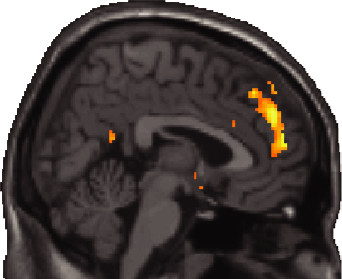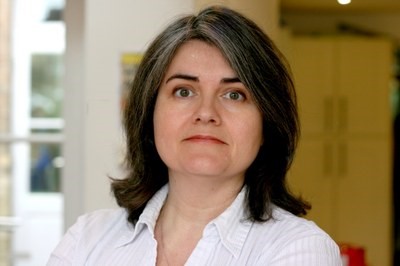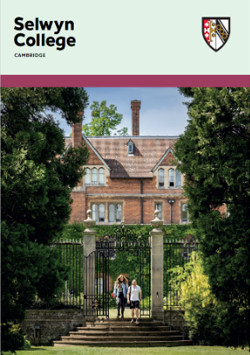Key facts
- Typical offer conditions - A*A*A or IB 43 overall and 776 to 777;
- Required subjects - At least 1 science/maths;
- Admissions tests - College assessment, no registration required;
- Interviews - 1 subject and 1 general;
- Written work - none;
- Average offers made - 4
The subject at Selwyn
The Psychological and Behavioural Sciences Tripos (PBS) course aims to allow a student to explore all aspects of psychology from society to neuroscience. The course will be accredited by the British Psychological Society as providing the Graduate Basis for Chartered Membership and is thus a suitable platform for postgraduate professional training courses in psychological disciplines such as Clinical Psychology.
During all three years of PBS, students can complement the main topics in psychology with study of their choice from a wide range of subjects, including subjects from the humanities (e.g.history of science, philosophy of science, philosophy of mind),social sciences (including introductory papers in sociology, anthropology and politics) or biological sciences (evolution and behaviour).
At Selwyn we encourage students to be adventurous in their choice of optional papers, and encourage them to explore the range of different possibilities that the course allows.
The Teaching Fellows
Dr Sheila Flanagan is the Director of Studies in PBS. We also have a number of fellows in HSPS and Natural Sciences who cover aspects of the PBS course. We are therefore able to provide a good deal of the supervision for all three years of the course either in house, or with the aid of carefully selected external supervisors.
As well as teaching and organising teaching for Selwyn, all of these Fellows research in their own University Departments.
Qualities we are looking for
What we are looking for is a genuine commitment to, and interest in, Psychology as a broad subject, from the biology ofthe brain to human interaction. We are looking for people who are fascinated by the relationship between mental events and the natural world, and who want to find out and understand more about people’s minds, and the brains which produce them.
We expect you to have a good record in a range of academic disciplines, including science; you should be comfortable with principles of science and not afraid of mathematics, or hard work. Above all, we are looking for people who have the potential to think scientifically and critically about how the mind works.
Interviews
You can expect a subject interview, together with a shorter general academic interview. The longer interview will concentrate almost exclusively on matters within psychological sciences; we will be trying to assess how you think and the level at which you can think. Typically, you will be presented with issues or problems within psychology to discuss.
These discussion problems are deliberately open-ended, and we do not wish you to answer them from factual recall, but rather you will need to think through the problem, including things you know already, and information you are given. We are interested in a lot more than your ability to recall facts, we wish to see your ability to take on new information, as well as use the knowledge that you have in new and possibly unfamiliar situations.
In addition, applicants also have an interview with one of the Admissions Tutors. This is designed to learn about your interests and activities outside the Psychological Sciences, your motivation in choosing to study PBS at Cambridge, and the maturity of your approach towards academic work.
Subject requirements
To apply you will need A-Levels/IB Higher Levels (or the equivalent) in at least one of the following subjects - Mathematics, Biology, Chemistry, Computer Science or Physics. Psychology is not required. Ideally, you will also have some non-science subjects within your subjects.
Admissions Assessment - no registration required
Selwyn College will ask PBS candidates to sit a one-hour written test when they come for interview. This will consist of two sections. Section 1 will be an essay-type question (from a choice). Section 2 will be short answer questions (from a choice). This will assess data quantitative and analytical skills.
You do not need to register in advance and details will be provided with interview information.
March 2026
We asked our director of studies, Dr Sheila Flanagan a few questions ...
What do you study in Psychological and Behavioural Sciences?

Psychology is the scientific study of human experience and human behaviour. How do we perceive and interpret the world around us, including our social world? What is the structure of human personality and intelligence, how can we explain differences between individuals? What are emotions and memories made of, and what are the triggers for having specific emotions and memories? How do these psychological processes change as a person develops from childhood to adulthood? And how can we explain them in terms of the information processing that takes place in the brain? Psychologists seek answers to these and many other questions. We try to answer these questions by performing experiments to develop models and theories that help us describe, explain, predict, and modify human experiences, human behaviours, and their dysfunctions.
How did you get into Psychology and what do you specialise in?

My path to psychology was not straight forward. My interest in maths, physics and biology, first led me to study and work in electronic engineering. It was during my MSc in Music Technology that my interest in psychology was piqued. I was fascinated when I learned that to effectively synthesize sound and compose music with a computer (without ready-made music software), we needed to understand how sound was perceived by the human ear and brain. The subtle complexity of auditory perception was fascinating to me. To find out we could hear things that were not there, and yet not hear things that were there, was so much fun! That introduced me to the world of experimental psychology. After working as a research engineer in the audio industry for a few years, I did a PhD in Experimental Psychology at the University of Cambridge, and then a Fellowship researching the links between language, music and rhythm perception Since then, I have lectured for the PBS and Natural Sciences Tripos, in Auditory Perception. I am currently researching a the Centre for Neuroscience in Education at the intersection of speech, hearing and language development, using brain imaging, signal processing and machine learning techniques.
How does the PBS Tripos work?
You will be taught in core papers that cover all areas of psychology. From the first year on, you will also choose optional papers that cover topics from other scientific disciplines to help broaden your understanding of human psychology, behaviour, and culture. In the first year, you will take two core papers that give an overview of key topics and research methods in psychology, including memory, emotion, decision-making, intelligence, personality, and social behaviour. You will also choose two optional papers from a range of related sciences, including Biology, Philosophy, Social Anthropology, and Archaeology. In the second year, core papers cover Social and Developmental Psychology, and Cognitive Neuroscience. Second-year optional papers cover topics such as Neurobiology, Human Evolution, Globalisation, Social Problems, Political Philosophy. In the third year, you will choose a research project and perform experiments to investigate a psychological question and then write up your findings as a dissertation. In parallel, you will choose lectures on advanced topics such as Cognitive Psychology, Developmental Psychopathology, The Family, Criminology, Cognitive Neuroscience, Racism and Ethnicity, and Evolutionary Anthropology.
How is the Tripos taught?
The PBS Tripos is taught through lectures, small-group teaching ("supervisions"), and practical classes. Your studies are overseen by me as the Director of Studies in PBS; I act as your academic mentor throughout your degree. You will also have a Tutor in college who looks after you and offers support and advice on non-academic matters.
Why is Selwyn a good place to study PBS?
Your choice of college mainly affects the place where you will live and the community around you, as the academic offering is much the same whichever College you are at. Selwyn is located right next to the Sidgwick Site where many of the lectures take place, and is a short walk from the city centre where the other lectures and seminars are held. We have a strong community of psychology students (relatively large at 2-3 per year group) within an enthusiastic larger group of natural and social science students and fellows. Selwyn is a terrific place to be a student. It has a friendly and diverse community of students and fellows, excellent accommodation and facilities, beautiful gardens, and a vibrant student body.


